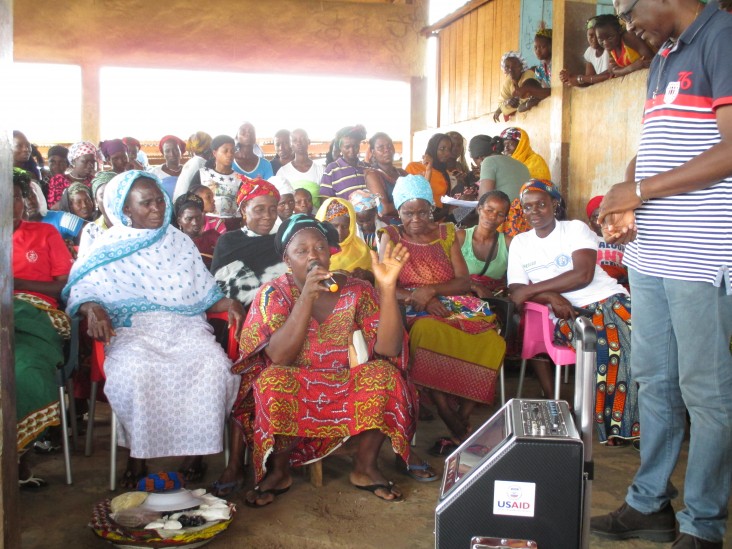
Feb. 2015—The town of Duékoué in western Côte d'Ivoire was among the worst hit during the country’s 2010-2011 post-electoral crisis. Violence centered on the neighborhoods of Kokoma and Carrefour, where nearly 1,000 died in clashes between ethnic groups.
The majority of Kokoma’s inhabitants, of Malinké and Baoulé origin, supported the current president, Alassane Ouattara, while the majority of Carrefour’s inhabitants, of the Guéré ethnic group, were loyal to former President Laurent Gbagbo.
Since the end of the post-electoral crisis, Malinké and Baoulé women of the Kokoma market and Guéré women of the Carrefour market have avoided interaction because of the lingering deep resentment and the mutual mistrust the clashes caused. Their common meeting point before the crisis, the Carrefour market, was burned to the ground during the violence. Though it was rebuilt in 2012 by a local NGO, with funding from the United Nations High Commissioner for Refugees, in an effort to restore community cohesion, it has not been able to attract Malinké and Baoulé vendors.
In November 2014, USAID’s Office of Transition Initiatives supported an intercommunity dialogue that brought together 110 Malinké, Baoulé and Guéré women to openly discuss their grievances. With guidance from an Ivorian expert in conflict management, women were candid about how they viewed their neighbors.
“I recognize (walking on our streets) the Malinké youth who burned our homes, killed our brothers and raped our sisters,” said one Guéré woman.
Her Malinké neighbor recalled how, “during the crisis, anyone who was not Guéré that went to Carrefour was simply killed.”
By sharing their views, participants came to appreciate their common suffering and sought forgiveness from each other, resolving to come together. Three preparatory meetings were held prior to the intercommunity dialogue. Two market days were subsequently organized during which women from one community sold their produce in the market of the other.
Recalling how previous efforts to bring the women together had failed, Flanizara Touré, the parliament member for Duékoué, remarked, “This is the first time since the post-electoral crisis that women of various communities are gathering without fighting.”
The door is now firmly open for women from Kokoma and Carrefour to meet at the Carrefour market and to continue to rebuild lasting community relationships by selling their goods in each other’s markets.
Pauline Zaipo Bohou, president of the Guéré women of Carrefour Market, said, “We have listened to our Malinké sisters, recognized that we were not the only ones that suffered, and have decided to make peace.”
LINKS







Comment
Make a general inquiry or suggest an improvement.